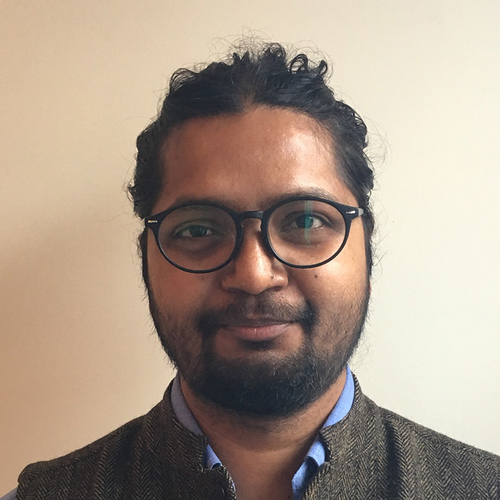
Bhawani Buswala is a Researcher at the School of Anthropology & Museum Ethnography at University of Oxford. As a part of the PEAK Urban programme at the Centre on Migration, Policy & Society, his current project explores the issues of social inequality and urban challenge in India by focusing on how the citizens located at the spatio-legal margins in the city imagine, access, and experience the state.
Bhawani was the Singh Postdoctoral Associate in the South Asian Studies Council at Yale University in 2016-17. He completed his PhD in Anthropology at Brown University in 2016. His principal research interests include questions of social inequality, caste, development, migration, urbanization, urban poverty, discrimination and stigma, dignity, and the state and citizenship. He explores these questions through ethnographic data on informal settlements, informal work, spatial segregation, food politics, everyday lived experiences, and claims on the state. His fieldwork focus is North India.
Before earning his PhD in the US, he was trained in critical research and methodologies at Jawaharlal Nehru University (JNU), where he completed an MPhil in Sociology as well as an MA in International Politics. He is also a qualified Chemical Engineer.
On the Dr. Malathy Singh Visiting Fellowship at Yale University:
The fellowship at the South Asian Studies Council provided me unique access to an exceptional academic space that has shaped my research, teaching, and professional life in key ways. My positive experiences at the Council began with the rich mentorship support I received upon my arrival. From my very early conversations with Karuna Mantena and Inderpal Grewal, I knew that their ideas, works, and experiences would be of critical importance for my work. Both Karuna and Inderpal are extremely generous in sharing their experiences, both academic and professional. Similarly, later in the fall semester I met with Kalyanakrishnan Sivaramakrishnan, who also provided great intellectual and professional support. Shivi was also inspirational through his exceptional pedagogical style. Anchored in these strong relationships of support and guidance in the early phase of my career, I had an excellent research and teaching experience during the fellowship period.
Extending and refining my prior research interests and conceptualizing my new project was the most exciting intellectual part of being at the Council. I used the fellowship year primarily to work on the manuscript of my book. The manuscript presently titled The Bazaar and the Butchers: Caste, Work, and Everyday Discrimination in North India, examines the everyday experiences of the Dalits in contemporary India. Based on my dissertation research, it documents the social life of labor by focusing on stigmatized butcher work in an urbanizing village located in a global industrial region in Rajasthan. At the Council, I had several wonderful opportunities to share my works and learn from my peers, interlocutors, mentors, and others. For instance, I gave a talk based on my book project at the South Asia Colloquium. I also presented another aspect of my research in a panel discussion on the importance of caste and cultural politics in understanding contemporary Indian polity and society. These interdisciplinary conversations, therefore, have been critical in shaping and providing new insights for my book project. In addition to working on my manuscript, I used the fellowship time to develop the initial ideas and plans for my second research project. For this project, I planned to start ethnographic research in Delhi focusing on the issues of urban poverty, illegal settlements, informal work, migrant narratives, public services, and experiences of the state. I am currently doing fieldwork for my second project.
The first experience of teaching often has a lasting influence on one’s pedagogical philosophy and practices. Teaching diverse undergraduate students at Yale was an ideal start to my teaching career. The fellowship provided me the wonderful opportunity to teach two Anthropology and South Asia courses which really helped me extend and refine my teaching competencies and critical pedagogical philosophy. Similarly, one of my other most cherished experiences at Yale was my interaction with the graduate students. As part of the weekly Chai socializations, I met numerous graduate students working on South Asian themes. It was enriching to learn about their projects and start new conversations.
In short, Yale’s interdisciplinary community provided me access to a range of esteemed scholars and diverse students to develop new relationships of mentorship, dialogue, and collaboration, which I will carry forward as I progress in my academic pursuits and career.
